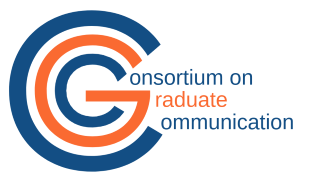CGC 2018 Summer Institute
(University of Michigan)
Emerging Identities in Graduate
Communication Support
Call for Participation
CGC members and the graduate students with whom we work represent a wide variety of identities when it comes to disciplinary affiliations, institutions, experience levels, job titles, responsibilities, nationalities, cultures, racial and ethnic identities, gender identities, language backgrounds, and so on. Graduate communication itself is emerging as an area of specialization and community of practice, with an identifiable and growing body of scholarship and new institutional structures. The graduate students we support are in the process of developing and defining their identities as emerging academics and professionals in their fields.
For the 2018 Summer Institute, we invite participants to reflect critically on how these webs of identities impact and shape graduate communication support as well as the emerging identity of CGC as a new professional organization. In particular, we hope to explore these questions and others:
- How are graduate support mechanisms affected by the ways in which institutions, support programs, instructors, and tutors conceive of graduate student identities?
- How do graduate students’ conceptions of their own identities affect their experiences in graduate communication support programs?
- How do race, class, nationality, language, culture, and gender shape the work that is being done in graduate communication support?
- Which scholars and texts have helped to shape the identity of the CGC as a community of practice?
- In what ways do our different disciplinary affiliations inform the work being done by CGC members?
- What opportunities and limitations come with the different professional identities held by graduate communication specialists, such as staff, tenured faculty, contingent faculty, administrator, graduate assistant and so on?
- What programs, courses, and workshops have been designed to help graduate students develop their identities as effective communicators in their fields?
To explore these questions, the Institute will feature works-in-progress sessions, workshops, and keynotes. Participants are welcome to submit proposals for works-in-progress sessions or workshops, or attend the Institute to “listen and learn.” All registrants will be included in the program.
Works-in-progress are short presentations on graduate communication pedagogical strategies, programmatic initiatives, and scholarship followed by rich discussion. The purpose of these works-in-progress sessions are for the presenters to share ongoing work, get feedback, explore open questions, and learn from other disciplinary and institutional perspectives.
Workshops—a new addition to the CGC Summer Institute!—will share nuts-and-bolts approaches to written and oral communication support, a perfect professional development opportunity for those who are new to the field or exploring new graduate communication initiatives or approaches. These workshops will take place concurrently with works-in-progress sessions and will not incur a separate fee.
Keynotes by established and emerging graduate communication scholars will push forward the conversation in relation to the Institute theme. University of Michigan’s John Swales and Christine Feak, two of the best known scholars on communication support for international multilingual graduate students, will close out the Institute with a special joint keynote. Other keynote speakers will be announced soon.
Proposals
Workshops
The deadline for workshop proposal submissions has passed.
The workshop CFP is linked here.
Works-in-Progress or Listen and Learn
Proposals due by the close of registration on Monday, April 30
Attendees will be asked to either submit a “works-in-progress” proposal or to choose the “listen and learn” option when registering for the Institute.
Works in Progress Presentations: present a 10-minute synopsis of your work in graduate communication program administration, course design, pedagogy, tutoring, materials development, or research. Presenters will be grouped in strands according to areas of interest in order to listen to each other’s presentations and engage in substantive discussion. Enter a short abstract (limit: 250 words) of your presentation on the registration form. You will also be prompted to choose the category that best fits your proposal:
- Research: share work-in-progress
- Pedagogy: share course designs, writing assignment designs, and pedagogical approaches
- Theory: what does theory look like in our context?
- Tutoring Approaches/Programs
- Program Administration: share proposals or assessment results from specific program initiatives, like a set of courses, bootcamp, writing fellows, summer institute, etc.
- Negotiating Campus Politics: Working conditions, finding campus allies, arguing for budgets
- Materials development: textbooks, professional development materials, materials for courses and tutoring programs
- Co-curricular support
- X Strand: none of the above but important to the work of graduate communication support
All works-in-progress proposals will be accepted. (Proposals are not adjudicated).
Listen and Learn: Attend the institute, listen to the speakers, participate in workshops, attend works-in-progress strands, participate in the discussions, and take home ideas for your classes, programs, and research. All listen-and-learn participants will be listed on the program.
Register here


Recent Comments